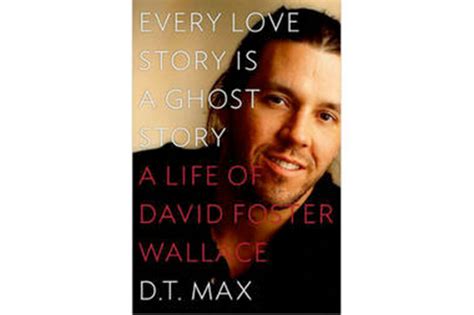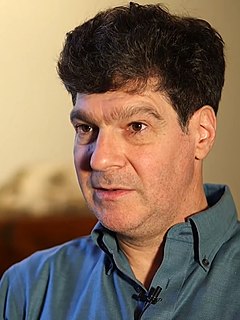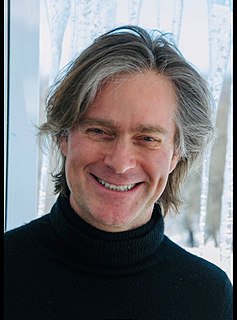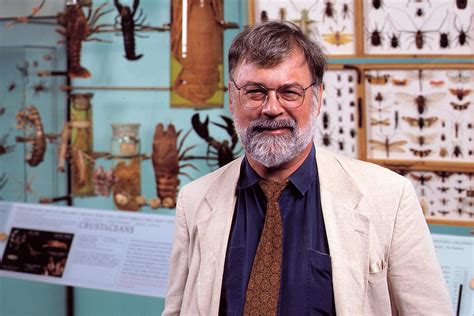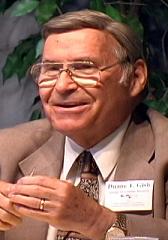A Quote by Michael Crichton
Considering that we live in an era of evolutionary everything---evolutionary biology, evolutionary medicine, evolutionary ecology, evolutionary psychology, evolutionary economics, evolutionary computing---it was surprising how rarely people thought in evolutionary terms. It was a human blind spot. We look at the world around us as a snapshot when it was really a movie, constantly changing.
Related Quotes
People are always invoking evolutionary psychology for everything. "Why do men hang around asking women out? Oh, to improve their reproductive success," every damn thing - religion, art - it can all be explained by evolutionary psychology. But in our hearts we know that evolutionary psychology is only sort of accurate, because it really doesn't capture what's most interesting about our lives.
The more evolutionary theory gets called an atheistic theory, the greater the risk that it will lose its place in public school biology courses in the United States. If the theory is thought of in this way, one should not be surprised if a judge at some point decides that teaching evolutionary theory violates the Constitutional principle of neutrality with respect to religion.
There is behavioral ecology, which looks closely at the difference different ecologies make to behavior and other features of animals and humans. There's evolutionary individual psychology, there's evolutionary social psychology. In Darwin's terms, evolution couldn't exist without variation, and variation is important in behavioral genetics. And so on, and so on. There are so many instances in which evolution actually sharpens the precision, I think, with which one can find out the importance of differences. We're interested in differences as well as commonalities.
It so happens that certain songs becomes part of culture, and culture is a form of preserving patterns. Yes, we're Mexican, and we're proud to be, but we're also human. But like all cultures, there are retrograde elements and evolutionary elements. I think we'll chose to head towards the evolutionary ones and leave the others behind.
Paleontologist Niles Eldredge, a prominent evolutionist, said: 'The doubt that has infiltrated the previous, smugly confident certitude of evolutionary biology’s last twenty years has inflamed passions.' He spoke of the 'lack of total agreement even within the warring camps,' and added, 'things really are in an uproar these days . . . Sometimes it seems as though there are as many variations on each [evolutionary] theme as there are individual biologists.'
What we call creation science makes no reference to the Bible. It says there are two possible explanations for the origin of the universe and living things: theistic, supernatural creation by an intelligent being, or nontheistic, mechanistic evolutionary theory that posits no goal and no purpose in the evolutionary process. We just happen to be here.

